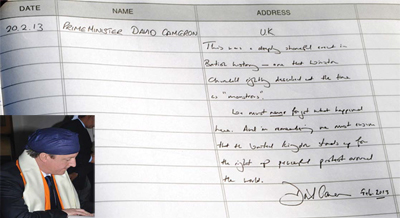
NEW DELHI (TIP): The Supreme Court on December 13 turned down Mulayam Singh Yadav’s plea to end CBI’s long and meandering probe into his family’s alleged disproportionate assets, although it handed the Samajwadi patriarch a consolation by dropping the probe against his daughter-in-law, Dimple. The order, which came after an agonizing wait of nearly two long years while the court kept it “reserved”, should disappoint Mulayam and his two sons — UP chief minister Akhilesh Yadav and Prateek.
The SP chief had cited the Supreme Court’s refusal to order a CBI probe into alleged disproportionate assets of another Yadav chieftain, Lalu Prasad, to make the plea that the apex court should get the central investigating agency off his family’s back. The court heard the matter for nearly four years before “reserving” its verdict on February 17 last year. A bench of Chief Justice Altamas Kabir and Justice H L Dattu said the apex court’s order passed five years ago directing the CBI to inquire into the PIL petitioner’s allegations was “neither irregular nor out of jurisdiction”.
The CBI probe has been seen by many as the chief reason why Mulayam, despite his political hostility towards Congress, has been constrained to come to UPA’s assistance; for instance over the nuclear deal with the US, the election of Pranab Mukherjee as president and, most recently, the parliamentary vote over FDI in retail. The perception has been strengthened by CBI’s flip-flops in the case, with the agency appearing to have strengthened or diluted its stand to synchronize it with Mulayam’s political posture towards the Centre. Pronouncing the verdict on behalf of the bench, the CJI said that the March 1, 2007 order empowering the Centre to determine the course of CBI’s probe was an error. In its 2007 order, the court had directed the agency to submit the investigation report to the Centre.
On December 13, the bench said, “The CBI functioning under the Delhi Police Special Establishment Act has no obligation to submit its investigation report to the Union government.” The two judges further said that neither the DPSE Act, which governs the CBI, nor the agency’s manual required it to submit its investigation report to the Centre. However, this can provide little comfort to Mulayam who has protested the 2007 order alleging that the PIL accusing him of having illegal assets was filed by a Congressman, Vishwanath Chaturvedi.
It declined to grant any relief to the Samajwadi Party chief and his family, except Akhilesh’s wife and MP Dimple Yadav, who had sought reconsideration of the Supreme Court’s March 1, 2007 order directing CBI probe into the alleged disproportionate assets of the Yadav family listed in a PIL by Chaturvedi. The CBI’s flip-flop had not escaped the court’s notice during the hearings on the review petitions by Mulayam, filed through advocate Gaurav Bhatia, and it had once remarked, “We do not want the CBI to become an instrument of the Centre.” This remark had come on an application filed by the CBI seeking to withdraw its earlier application, in which it had taken a high moral stand that it was an independent agency wanting to prosecute Mulayam and his kin in accordance with law and without any governmental interference.
The direction from the bench of Justices Kabir and Dattu to the CBI not to take any direction from the Union government on the issue of investigation into the disproportionate assets of the Yadavs had found echo earlier. It had said, “The CBI should not be fettered in any way and it should not be asked to submit its probe report to the Centre for further action.” These comments had come during the hearing on the review petitions on January 6, 2009. On that day, when it was pointed out that the earlier judgment given by a bench headed by Justice A R Lakshamanan, who retired soon after pronouncing the judgment and went on to head the Law Commission of India, had directed the CBI to submit its report to the Union government, the court had no hesitation to concede that it had made a mistake by giving that order.
The CBI had moved the SC with an application on October 26, 2007, saying “in the matter of registration of a case, the CBI does not make a reference either to the central government or the state government”. By expressing its desire to place the status report of the probe before the SC rather than the Centre, the CBI attempted to drive home a point that it did not take orders from political masters in matters of investigation.



Be the first to comment